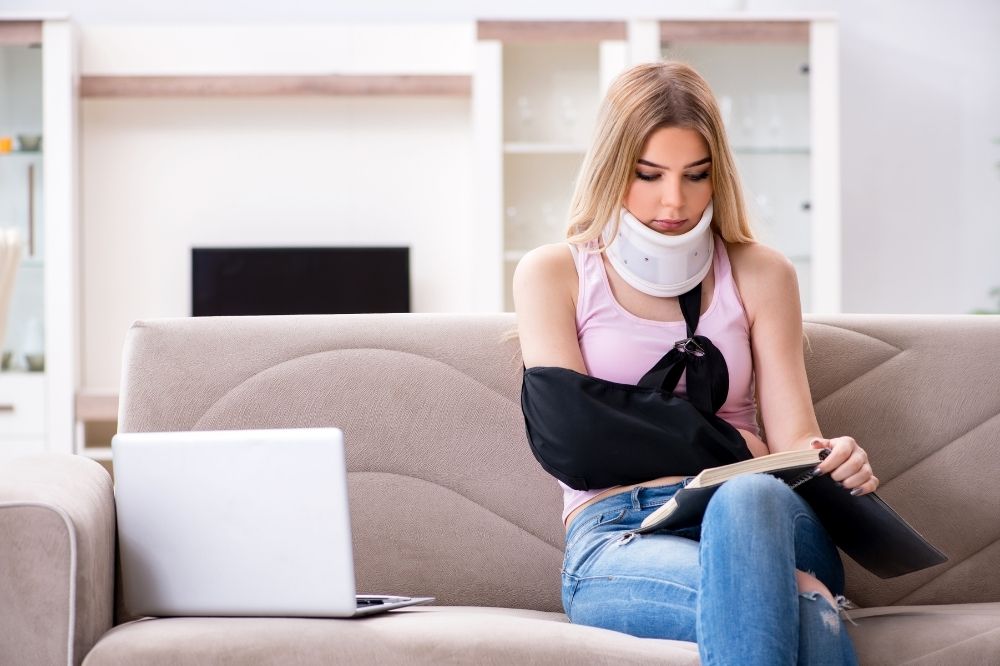An injury can shake up your entire life. It doesn’t just affect your body—it can touch your income, routines, and responsibilities. For many women, the healing process goes beyond physical care. It includes managing work, family, bills, and stress. And when you’re in pain or stuck at home, it can feel like everything is moving without you. That’s why it’s important to stay grounded and informed. Taking the right steps early can help protect your health and keep your finances steady. You don’t need to do everything at once. What helps most is knowing what to focus on and when.
This guide offers you those simple, clear steps to help you recover in a way that supports both your body and your peace of mind. So, keep reading!
1. Start with Medical Care That Meets Your Needs
If you’re hurt, your first step should always be proper care. Go to a doctor, even if the injury seems small. Sometimes the real problem doesn’t show up right away. Swelling, soreness, or trouble moving might come later. If you wait too long, treatment can be harder. Keep notes after every visit. Write down what the doctor says and what they ask you to do. Save receipts and prescriptions.
These small steps make a big difference if your condition changes. A clear record helps with follow-ups, second opinions, or even insurance questions. Taking care of your health first puts you in a stronger position for everything else.
2. Give Yourself Time to Rest and Recover
It’s tempting to go back to your usual schedule right away. But healing takes time. Let your body rest. That doesn’t mean you need to stay in bed all day, but it does mean cutting back. Try a light activity that feels safe. Talk to your doctor about small ways to stay active. Read, write, stretch—do things that help without overdoing it. Staying too still for too long can affect your mood, so find balance.
Give yourself permission to say no to things that don’t help you feel better. Let rest be part of your plan, not something you feel guilty about.
3. Review Your Finances Sooner, Not Later
After an injury, expenses add up fast. Between doctor visits, travel, or lost work time, money can get tight. That’s why it’s smart to review your situation early. Look at what’s coming in and what’s going out. Are you using savings, sick pay, or help from family? List everything—medications, transport, supplies. Even small costs matter over time.
When you understand your budget, you can plan ahead instead of reacting later. This also helps when asking for assistance or adjusting your expenses. You don’t need to solve everything at once. Start with what you know, then update it as you go.
4. Legal Help Might Be Easier Than You Think
Sometimes injuries happen because someone else made a mistake. Maybe you slipped on a wet floor, got hit in traffic, or got hurt at work. In these cases, a personal injury lawyer can help you understand what to do next. They deal with these situations every day. Some offer free advice to help you decide if you need to file a claim. They can explain what to expect and how to protect yourself.
Many people don’t ask because they think it will cost too much. But some lawyers don’t charge unless you win. If you’re unsure, it doesn’t hurt to ask. Having clear answers can ease a lot of worry.
5. Talk to Your Family and Your Employer
Injuries affect more than just your body. They touch your time, your plans, and the people around you. Let your boss know what’s going on. Talk about what you can and can’t do. If you need to cut back on hours or take time off, be honest.
At home, ask for help early. Don’t wait until you feel overwhelmed. Share the load if you can. That might mean asking a friend to cook or having your partner take care of errands. Being clear about your needs avoids stress later. Most people want to help—they just need to know how.
6. Find Local Support That Makes Life Easier
Every city has resources that many people overlook. Some offer rides to doctor visits. Others provide food deliveries or short-term help around the house. Churches, community centers, and nonprofits often have programs for people going through tough times.
Ask your doctor or nurse if they know of anything nearby. Even your local library might have flyers or contact numbers. These services can take the pressure off while you focus on healing. You don’t need to handle everything alone. Just a few phone calls could lead to help you didn’t know existed.
Conclusion
Healing isn’t just about medicine—it’s about feeling safe, supported, and informed. When you take care of your body and protect your future, you recover stronger.
If you’ve been hurt, take your next steps seriously. A steady plan—paired with the right support—can help you feel whole again, both physically and financially. You deserve that peace.

